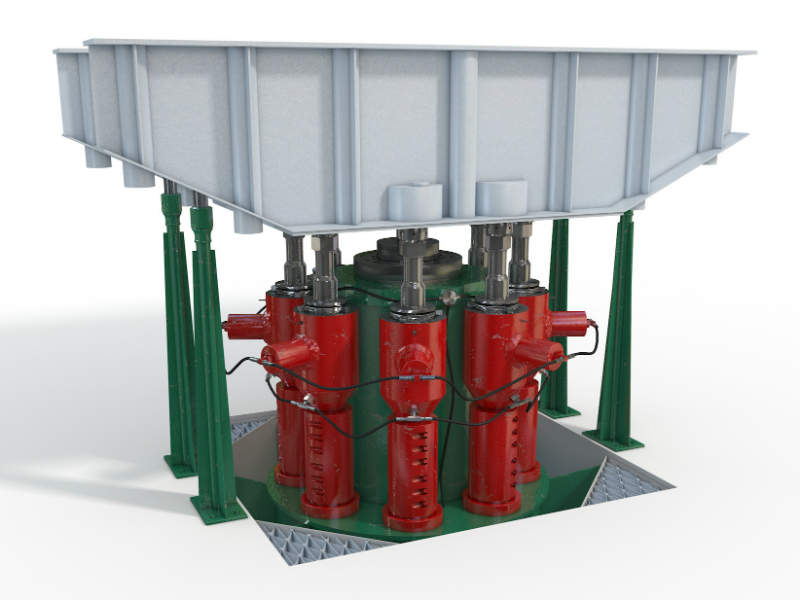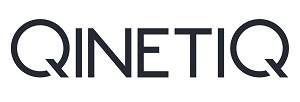
QinetiQ’s Two Tonne Shock Table (2TMC) has recently been recommissioned and is now available for use by customers, together with the Deck Shock Machine (DMC), restoring the capability. It is available for use by Defence contractors and others who need to test equipment to be deployed on Royal Navy submarines or ships.
Located in Rosyth, Fife, the shock tables are part of the wider shock facility which is used to test equipment to the UK Ministry of Defence (MOD) exacting standards, simulating the effects of non-contact underwater explosions. Unique in the UK, the shock facility meets the MOD’s requirement to test to time and motion parameters, creating a thorough understanding of how equipment will be affected by shock events.
The shock testing facility is encompassed in QinetiQ’s Maritime Strategic Capability Agreement (MSCA) contract. Its use is mandated by MOD, via a Defence Instruction Notice (DIN), for equipment destined for UK Defence use. The MSCA contract delivers a wide range of capabilities and retains strategically important facilities and Suitable Qualified and Experienced Personnel (SQEP) available, often at short notice, to meet customer needs for maritime testing and analysis.
Product development
Shock testing is an integral part of product development. Tests demonstrate whether the equipment will be able to function at the required level after the specified level of shock. Requirements range from the need simply to ensure that equipment does not become a projectile, causing other failures or endangering the crew, to the need to confirm that the functionality will not be compromised. Used as part of the product development lifecycle, shock testing can validate designs, ensuring the product is fit for the purpose for which it will be used.
The range of equipment tested at Rosyth is wide. It includes Commercial Off The Shelf equipment and allows for cost-effective ruggedisation to be considered, often to very specialist bespoke equipment. The results are often enlightening.
Shock testing can contribute to product development in other ways. Equipment can be tested to demonstrate that it meets the requirement of a bidding opportunity, either standalone or as part of a more complex system. Some customers use the tests to validate models from the real data they produce. These models can then be developed with increased confidence to cover situations that are more difficult to test.
Shock testing capability
QinetiQ’s shock testing capability consists of two shock tables: a Deck Machine and the recommissioned 2TMC. The DMC simulates the shock motion of equipment installed on the deck of ships or submarines – while the 2TMC is used to test equipment located in a surface ship hull environment and in the majority of the submarine environment.
The DMC uses stored energy in torsion bars to produce a damped decaying sine wave representative of the deck environment, and can be configured to operate vertically or horizontally. The 2TMC utilises compressed air to fire a projectile to impact the underside of the test bed to induce shock loading. As this machine only fires in the vertical axis, an interface is required to test equipment in the other two orientations.
The facility also benefits from high-speed cameras, which can film the test and provide additional evidence to supplement test results. The camera output has also been used as valuable training material.
While the primary focus is UK maritime defence, the tables are increasingly being used by international and wider commercial marine customers whose requirements may be different to that of the UK MOD. The facility has also been used in ‘non-maritime’ applications to test equipment for military vehicles and other off-road scenarios.
Experienced staff
The SQEP staff at Rosyth are experienced at helping customers to get the best from the service offered. They are consistently praised for their professionalism and flexibility to ensure that the tests give customers the highest quality results – often able to save valuable programme time by offering alternative test strategies. Trusted to uphold the MOD’s demanding standards, the staff are completely impartial and focused on assisting customers to navigate the shock test process. They pride themselves on creating and maintaining good relationships, some of which have existed over many years.
Recent customer comments:
- Aish Technologies
- “We found the QinetiQ staff responsive, supportive, and very knowledgeable.”
- Babcock
- “We found the QinetiQ team highly knowledgeable and we were grateful for their recommendations in this specialist area.”

